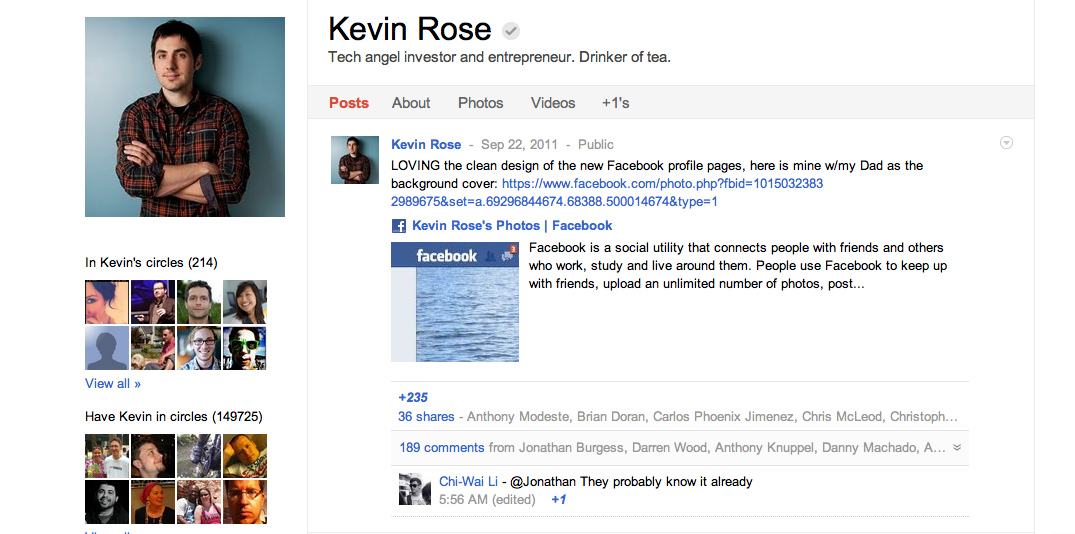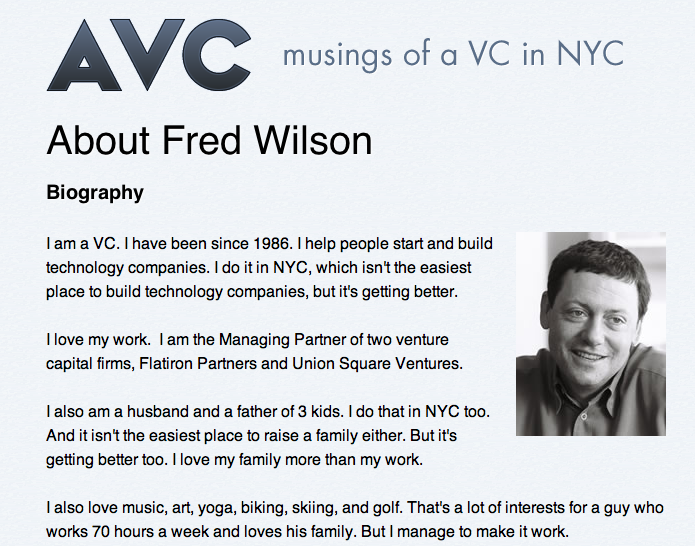Brands
Fred Wilson and Kevin Rose: The Battle of Audience Building Strategies
This past July, former Myspace President Tom Anderson framed a profound question for bloggers and content marketers: what is the best strategy for building an audience?
Should we expect people to seek us out on our own blogs, or should we leverage our talents via mainstream media and established distribution channels?
To explore this topic, Anderson’s article juxtaposed two prominent writers: Digg co-founder, tech angel investor, and Internet entrepreneur Kevin Rose and Fred Wilson, a New York-based venture capitalist and prominent blogger.

Kevin Rose’s Google+ Page
What sparked Anderson’s question was Rose’s decision to forward his blog to Google+. In making this decision, Rose rationalized that G+ gave him a more effective platform to engage with his followers and readers on a real-time basis.
Why maintain a blog if G+ does the job better? Rose’s decision reflects a fundamental quality of the Internet: it’s growing quickly and creating diverse opportunities for networking, distributing content, and exchanging information.
The argument that Rose makes is strong, but is it a practice that we should follow? Leveraging Rose and Wilson as examples, Anderson reaches a strong conclusion that as writers, we need to watch how the Internet is growing and evolving. Ultimately, best-practices are nuanced and adaptable, varying based on what you hope to achieve from blogging.
Responding to Anderson through his own blog, Wilson reaches a similar conclusion that we should embrace technology to find tools that support our goals.
At the same time, he leverages the words of fellow writer Marco Ament to streamline his key argument into 11 words: “if you are about your online presence, you must own it.”
Utilize discussion channels, but maintain a communication platform that is uniquely yours. Take ownership and command of your content, and position your blog as the focal point for your discussions. As Wilson suggests, blogging is something powerful and permanent.
While valuable, social networks like Twitter, Facebook, and G+ should generate networks to support your blog. These are places that are ideal for engaging with people, and they are layers to add to your writing. Ultimately; however, if you’re a writer, your blog is where the substance and thought leadership will flourish.

Fred Wilson’s Blog, AVC
Wilson’s perspective reflects a school of thought that anchors the blogging community. While you write for an audience, and while you write to build your presence and reputation, your blog is a stand-alone collection of something that is unique to you. It’s something that you control, and it evolves in tandem with your career and your ambitions.
Given Wilson’s compelling school of thought, was Rose wrong in his decision to move his discussion platform to G+?
The answer is no.
G+, Facebook, Twitter, and Tumblr are no substitutes for blogging, but blogging isn’t necessarily for everyone. There is no one-size-fits-all online community, and real-time engagement is a perfectly valid priority. Rose wasn’t looking to replace his blog; rather, he was exploring an alternative.
At first glance, Fred Wilson and Kevin Rose reflect juxtaposing principles of blogging. A closer look; however, positions the two schools as layers to one another.
Ultimately, who’s right? There is no right answer to this question, and what matters most are your unique goals.
Related articles
- The “Fred Wilson School Of Blogging” (businessinsider.com)
- How To Build An Audience On The Internet: The Kevin Rose School Vs. The Fred Wilson School (techcrunch.com)
- What Would You Ask Fred Wilson? (battellemedia.com)
Get better at your job right now.
Read our monthly newsletter to master content marketing. It’s made for marketers, creators, and everyone in between.




